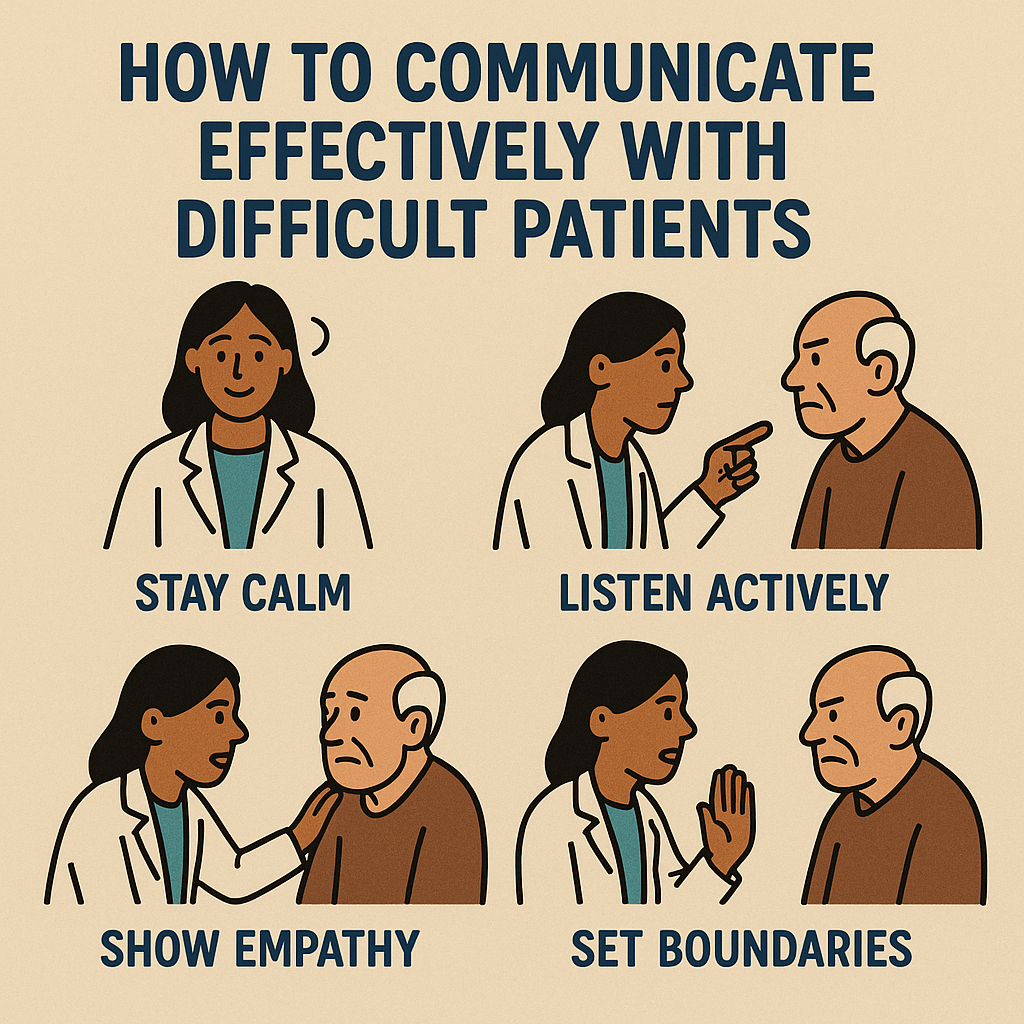Strategies for Nurses and Healthcare Professionals
Effective communication is at the heart of patient care, but not every interaction goes smoothly. Whether due to fear, pain, misunderstanding, or mental health issues, some patients are more difficult to communicate with than others. As a nurse or healthcare provider, knowing how to respond with empathy and professionalism is crucial.
Why Patients Become Difficult
Before labeling someone as “difficult,” it’s essential to understand where they’re coming from. Common causes include:
- Anxiety or fear about their health
- Pain or discomfort that clouds judgment
- Mental health conditions or cognitive impairments
- Language or cultural barriers
- Previous negative healthcare experiences
1. Stay Calm and Centered
Your tone, facial expression, and body language matter. If a patient becomes aggressive or uncooperative, take a deep breath and respond calmly. Reacting emotionally can escalate the situation.
Tip: Lower your voice rather than raising it. A calm tone can de-escalate tension.
2. Practice Active Listening
Difficult patients often feel unheard. Show that you’re listening by:
- Making eye contact
- Nodding to acknowledge them
- Paraphrasing their concerns
- Asking clarifying questions
“I hear that you’re frustrated. Can you help me understand what’s been bothering you the most today?”
3. Set Clear Boundaries
While empathy is key, it’s also important to protect your own well-being and maintain professional limits.
- Be firm but respectful.
- Clearly explain what behavior is unacceptable.
- Offer choices where appropriate to give them a sense of control.
4. Use Simple, Clear Language
Avoid medical jargon. Use everyday language to explain diagnoses, procedures, or treatment plans. Misunderstandings often cause frustration.
“Instead of saying ‘antihypertensive,’ say ‘medicine to lower your blood pressure.’”
5. Empathize Without Enabling
Acknowledge emotions without agreeing to unreasonable demands.
“I understand you’re upset. Let’s work together to find a solution.”
Don’t promise outcomes you can’t deliver. Stay realistic and grounded.
6. Involve Them in the Care Plan
When patients feel powerless, they may act out. Offering options and involving them in decisions can reduce resistance.
“Would you prefer to take your medication now or after lunch?”
7. Know When to Get Help
If a patient becomes threatening or abusive, prioritize safety. Call for support from security or your supervisor when needed.
Documentation is also key — record any incidents factually and promptly.
8. Follow Up and Rebuild Trust
A difficult encounter doesn’t mean the relationship is beyond repair. A follow-up conversation can build trust and demonstrate your continued commitment to their care.
“I know yesterday was tough. I’m glad we’re working together today.”
Final Thoughts
- Every patient deserves respect — even when interactions are challenging. With the right communication strategies, you can turn tension into trust, helping both the patient and yourself navigate difficult moments with compassion and professionalism.

